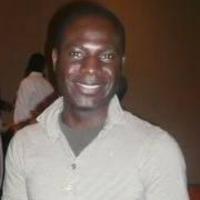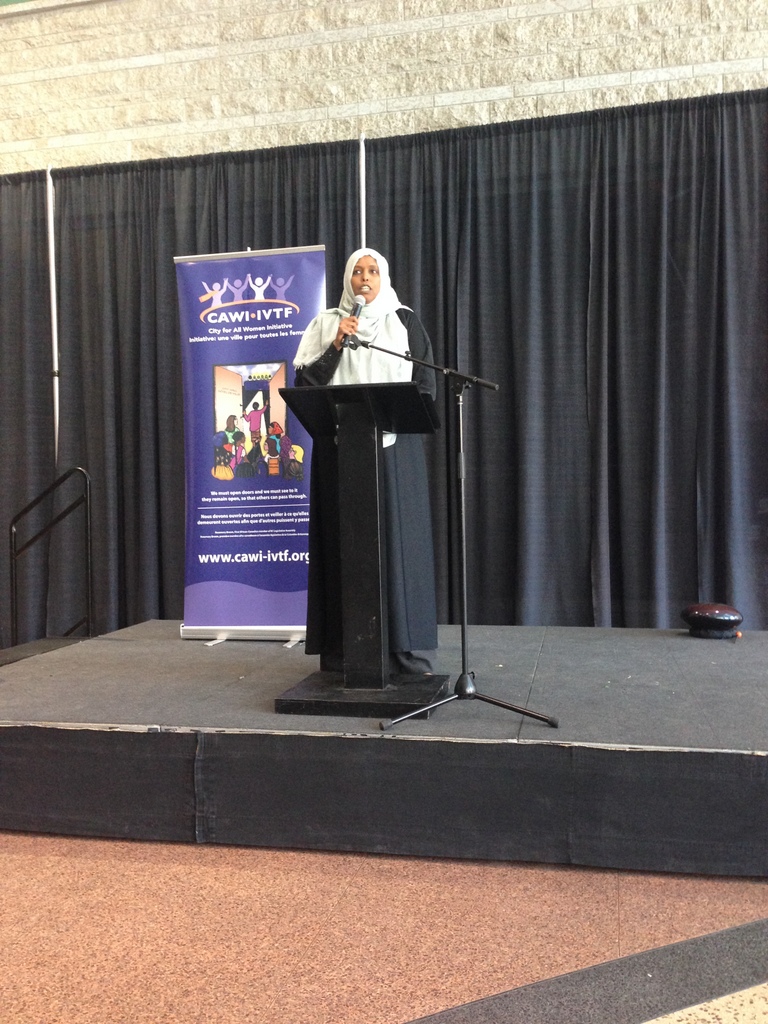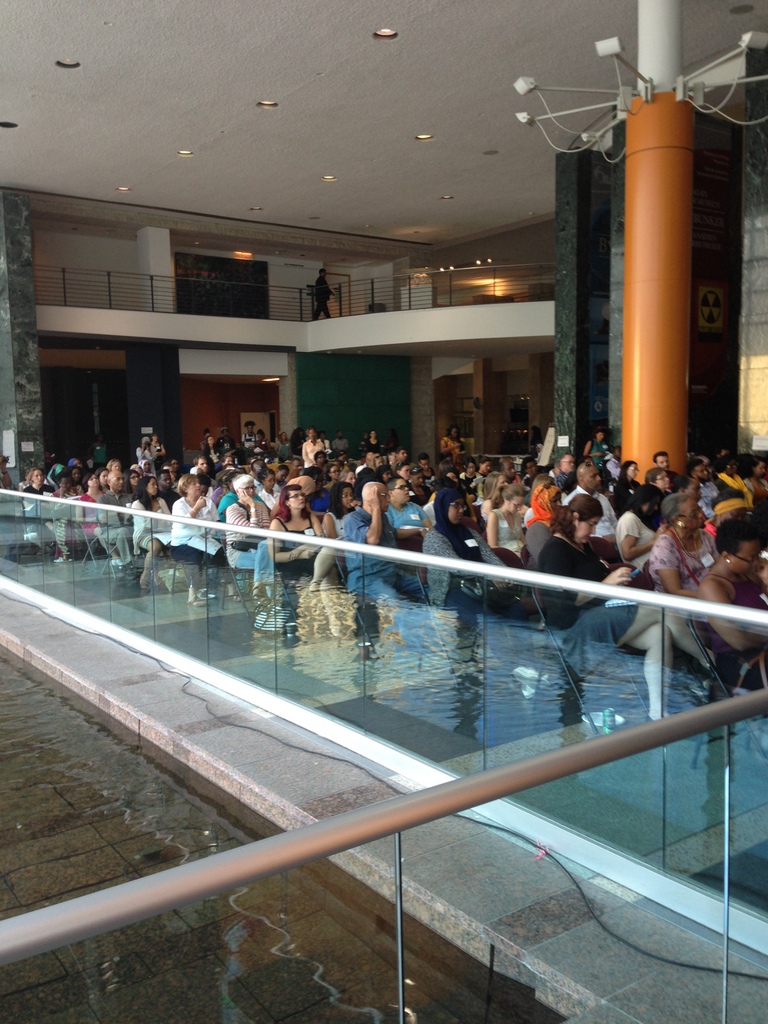
Official reports and anecdotal accounts attest to the pervasiveness of anti-Black racism in all areas of life, but most notably within policing. The repeated horror of police killings of Blacks in the United States has been a unifying factor to a shift in dialogue and consciousness-raising about Black lives mattering in Canada. Pro-Black community activists and their allies have, in recent years, taken to the streets and the airwaves to denounce police brutality and racial profiling. In the midst of these protestations, which often are a reaction to a perceived injustice, one critical question remains unanswered: how can the Black community leverage its body politic to ensure sustained political action for change?
This question was at the heart of the organization of the forum Anti-Black Racism: Understanding Its Impact in Canada held last month at Ottawa City Hall. The event, which I helped to organize, was cosponsored by Ottawa Local Immigration Partnership and City for All Women Initiative. The forum sought to raise awareness about the impact of anti-Black racism in Canada and support effective community organizing with and within Ottawa’s diverse Black communities. Approximately 250 people came, representing city and federal politicians; academic researchers; non-uniformed OPS members; and members of the public. Although the event was open to all, Black voices and participation was prioritized. Mainstream settings are often hostile to Black voices, with the effect that their experiences are marginalized. At this event, White allies were welcomed but encouraged to check their privilege.
Despite a general consensus that Black people experience anti-Black racism, the exact definition of this term has been hard to come by. My presentation that evening attempted this definition: anti-Black racism describes the nexus of intersecting oppressions experienced by Black people in Canada because of their skin colour. It is rooted in the legacy of slavery and colonial rule, historical practices that inform contemporary construction of Black people as questionable subjects or nonhumans. The concept centralizes race and racism as operating forces of oppression, exposing racial mechanisms of state-sanctioned violence. It provides a lens to understand how racism works to devalue Black lives, with the effect that Black people are disadvantaged at all levels—social, economic, and political.
This definition helped to set the tone for the evening’s discussion. Based on an individual selection at registration, participants were divided into six topic groups: social services; Islamophobia; gender violence, which also included discussion about homophobia and heterosexism; education; policing; and media. These areas represented key sites of anti-Black racism in mainstream society. However, within Black communities, homophobia and heterosexism can sometimes be a barrier to collaborative community organizing. The forum provided a context for initial conversation and consideration of strategies for inclusion.
Despite the different focuses, central to the discussion topics was the analysis of the intersection of anti-Black racism across these areas of concern. In the one-hour group discussions, participants were asked to consider how anti-Black racism impacted their given topic; to reflect on current efforts to address the issue, in addition to identifying community members who were not currently engaged in taking action but should be; and specific actions that could be taken to move towards positive results. At the end of group discussions, participants reassembled, and representatives from each group reported on one of their action ideas for change. The tenor of this sharing was both uplifting and critical of the status quo. The latter is understandable, given that the Black community was still reeling from the tragic death of Abdirahman, although the timing of the event and Abdirahman’s death was purely coincidental.
Notes from the event are being assembled into a report, with plans for a follow-up meeting with the Mayor, Jim Watson. As the forum revealed, there is resiliency and a wealth of resourcefulness and knowledge within Ottawa’s Black community for creating a culture of sustained accountability of public leaders. Public protest is one but not the only option for change. Effective organizing also requires a unified community front in which the various talents of Black community members are harnessed for the realization of the greater good.


About the writer
Sulaimon Giwa is a PhD Candidate in social work at York University, with research, policy, and direct practice experience at the community and federal level, in youth health promotions, community and organizational practice in diverse communities, corrections, and policing. He was the coordinator for Community Policing: A Shared Responsibility, a project which received federal funding from the Department of Canadian Heritage to address racism and racial profiling in policing in Ottawa. His applied research program and professional activities centralize critical race transformative pedagogies and theories as frameworks and analytic tools for social justice and equity. His research interests are in the areas of race and sexuality; critical social work pedagogy; antiracism/oppression; and the criminal justice system. He has taught in the social work programs at Ryerson University and York University.
